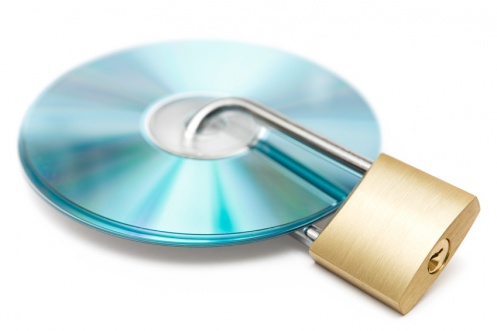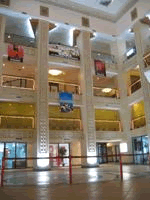
Piracy is the theft one’s intellectual property, particularly in the entertainment industry.
Experts have highlighted that one major snag to development of the industry is piracy. It has ripped off many producers, artists, marketers and stakeholders. It has prevented the industry from rapid financial growth and advancing in major areas, due to low income from their intellectual material.
One begins to wonder who these pirates are. Where they live? Some allege they are the marketers, others say the cartel are domicile in Alaba International market, Lagos.
Of late, some pastors have had their messages pirated and sold in large quantities to unknown worshippers. Some even sensitized their members to be wary of church products they purchase. But could this be the solution?
December 2007, Nigerian Copyright Commission (NCC) in a statement said that the film industry loses an estimated N4, 200,000,000 annually to illegal digital duplication, on-line piracy and unauthorized rental of video works within the country.
A report by the Nigerian Television Authority (NTA) in August, 2008, estimated the total annual loss of the content industries (Music, Software and Video) within the nation to be well over N100, 000,000,000. This is a great loss, no doubt.
Also in January 2008, the Director of Filmmakers Association of Nigeria (FAN), Mrs. Pat Okolo stated that the country loses an estimate of 4 million naira to international piracy of Nigerian movies in America, Canada and Europe. Okolo also suggested that there is an urgent need to organize marketing and distribution strategy internationally to eliminate piracy and repatriate money and efforts back into the Nigerian economy.
It should be stated here that various efforts by the industry players against piracy are worth mentioning, but have not produced needed results.
Recently, artists and producers rallied at the national stadium, Lagos, for what they referred to as “HUNGER STRIKE”. Can anyone really blame them? They sought means to vent their anger. But one pertinent question that begs for an answer is: what has that “hunger strike” produced? Has the strike stopped the pirates from business? How successful has the campaign against piracy been in the last one decade? Is there hope for the industry?
An attempt to protect intellectual property is premised on accepted moral, economic considerations. As a fundamental rule of natural justice, every man should be guaranteed the fruits of his labour. There is a socio economic principle that intellectual property protection encourages individual effort and invariably enriches the society. Since the creative industries supports a substantial part of Nigeria population will affect the economy one way or the other.
The revelations from Harvard Business School in 2008 about the entertainment industry put the loss of intellectual property to pirates at over 85%.
Piracy is so bad in Nigeria that local artists and filmmakers now refuse to release their latest albums and movies into the retail market. Reports from neighboring countries suggest that large quantities of pirated discs are being exported from Nigeria across the region.
The intellectual property system is the only way of protecting the creativity of authors and ensuring that the nation’s intellectual treasures and the resulting economic derivation are better secured. Lack of adequate protection over time, has resulted in direct economic loss to right owners while government is denied revenue from legitimate products. This is in addition to the obvious moral and ethical reasons against unjust enrichment, intellectual theft and fraudulent claims that characterize piracy and other intellectual property abuses.
There is a preponderance of opinion amongst experts that a modern and well managed copyright system could be a catalyst for economic reform. With a huge population of over 140 million people, Nigeria is likely to generate more revenue in the exploitation of its copyright based industry.
By Sunday Osanyintuyi
Sunday Osanyintuyi handles all communication affairs for Yemi’s Media, an anti-piracy/entertainment company


















